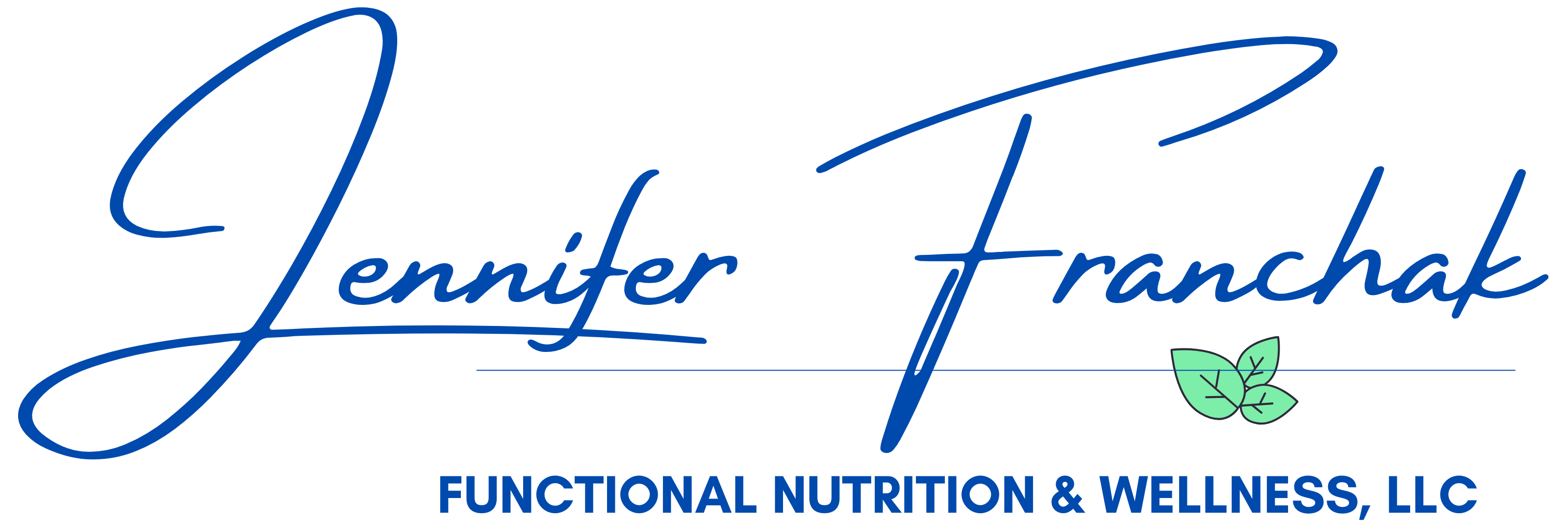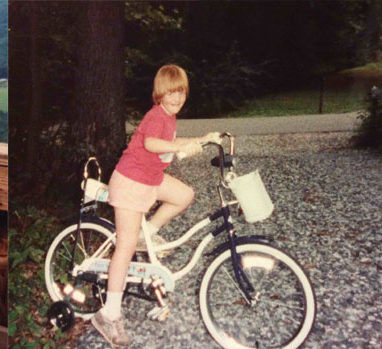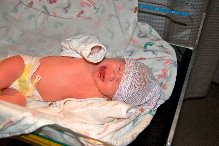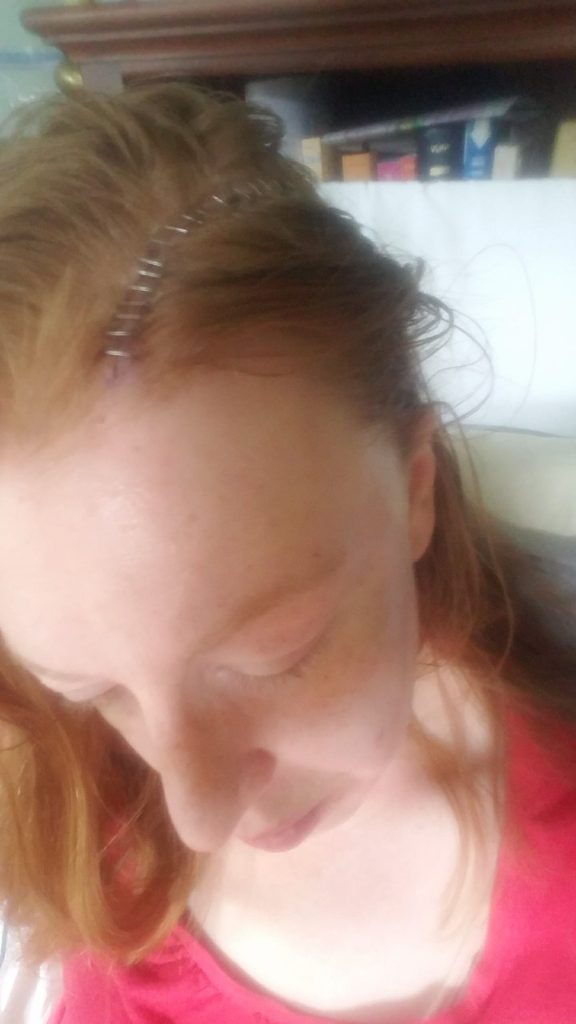Why am I passionate about nutrition? That is not an easy question to answer. I actually have several reasons that have led me to become a Certified Functional Nutrition Counselor.
Childhood and IBS
Growing up, I was never really aware of the impact that nutrition and lifestyle could have on my health – – both current and future. I didn’t understand how these things could affect my hormones, immunity, digestion and well-being.
To be fair, some of the science that we now know about, which demonstrates the impact that food and lifestyle have on our DNA was not established then.
I grew up in the ‘80’s when everything was “low-fat”, skim milk and “ready made”.
My home was no different. My mom had our best interests in mind, and the pervasive thought at that time was that “fat is bad”!
So in our home, we only drank skim milk, and some occasional Sunny Delight – – an orange juice knock-off full of high fructose corn syrup and everything except for oranges.
Diet soda also made it into our fridge, because it was a much “healthier” version of soda. Instead of eggs and butter, we ate egg-beaters and margarine, and only fat-free frozen yogurt. In fact, most of our food was highly processed and masqueraded under the guise of “health food.”
Yet, despite all of this “healthy” food, I struggled with weight and a lot of digestive problems during my whole childhood.
I remember being out somewhere with family or friends, and the urge to go to the bathroom would hit suddenly. I had to get to the bathroom immediately, and it was extremely stressful.
Our family doctor said that I probably had Irritable Bowel Syndrome (IBS), but there were no recommendations and no course of action that I was told to pursue, so life went on as usual.
No one made a connection between my intestinal problems and the copious amount of sugar and processed foods that I was eating on a regular basis.
Likewise, no one recognized that I had a tremendous amount of stress that I was internalizing – from home life and school.
As I got older, my problem went from needing to get to the bathroom immediately to not being able to go. I also struggled with other things, like painful and heavy cycles, acne, brain fog, low energy, and being overweight.
Birth and Death
It wasn’t until the birth of my first child that I started taking a real interest in nutrition and how it affects our bodies and our overall health.
I realized that I had this completely perfect, helpless infant who depended on me completely for proper nutrition, and it really motivated me to learn everything that I could about the ways in which nutrition can help to prevent chronic disease, like the cancer that my mom had suffered with.
At that point my mom had died 2 years earlier, at the young age of 53, from an aggressive form of cancer that had come back at three separate times within four years.
She had tried to eat what she thought was a nutritious diet, but this mainly consisted of highly processed foods that were lacking in the nutrients, which she desperately needed.
During her fight with cancer, she was never made aware of the impact that nutrition may have had on her cancer. She was never informed that eating a nutrient-dense diet may have greatly improved her quality of life and would have supported her body during the intensity of chemotherapy treatments.
This terrible experience of watching my mom’s body weaken with every chemotherapy and radiation treatment that she was forced to endure – – only to find out that the cancer was still spreading – – was also a motivating factor for me to learn everything that I could about the impact that nutrition and lifestyle have on disease.
Brain Bleed and Brain Surgery
Watch my video series for an in-depth account)
In 2019, I had my own health crisis. I was diagnosed with a Cerebral Cavernous Malformation (CCM).
A Cavernous Malformation is an irregular cluster of blood vessels that are leaky and can sometimes leak blood into the brain, which can lead to many problems. Mine did bleed.
I was experiencing numbness and tingling down the left side of my body, along with intense nausea spells, and this is what led me to see my primary care doctor.
He referred me to a neurologist, who then scheduled an MRI of my brain.
The MRI revealed that my brain had bled, as well as a lesion in the right insula. I was so scared. Especially since I didn’t get my results until the weekend, and I wasn’t able to talk to the neurologist until several days later.
When I finally spoke with him, he had me get a CT scan of my head that day. Later that evening, while I was driving my four kids to choir practice, I received an urgent call from my neurologist.
He told me that I needed to get myself to the hospital immediately because they thought I had a “giant aneurysm”.
I ended up spending two days in the hospital, and I had a procedure called a cerebral angiogram in order to find out if I definitely had a giant aneurysm.
Thankfully, the aneurysm was ruled out, but the diagnosis of a Cerebral Cavernous Malformation was made.
The next few months were a whirlwind.
The covid-19 lockdowns happened, my kids were home, and I was trying to learn everything that I could about the leaky blood vessels in my brain.
Additionally, I was told that I needed to see an epileptologist, who diagnosed my numbness and tingling “episodes”, as I called them, as partial focal seizures. He told me that I had epilepsy.
After hearing this second shocking diagnosis, I cried. It all felt like so much.
However, I knew that there were changes I could make with nutrition and lifestyle that could potentially help. I also knew that I needed to be my own advocate, and therefore I needed to become extremely knowledgeable about my condition and all of my treatment options.
This led to two things.
First, I immediately put myself on a classical ketogenic diet in order to see if it would help with seizures. After three weeks of meticulously measuring urine ketones and monitoring my fat and carbohydrate intake, my seizures that had been happening multiple times every day completely stopped.
Next, I read through all of the research that I could find about the long-term outcomes of patients with cavernous malformations that had bled and were causing seizures. Research became my full-time job!
After months of research, and dialogue with my neurosurgeon who wanted me to take a “wait and see” approach, I finally came to the conclusion that my best course of action would be to surgically remove the Cavernous Malformation.
It was a terrifying decision, but I did not want the risk of having a massive stroke, and continuing to have seizures which could become debilitating.
Of course there were no guarantees that the seizures would go away, or that my neurosurgeon could even get all of the cavernous malformation. It was deep in my brain, and there was risk. If it wasn’t completely removed, it could grow back. I could wake up from surgery and have difficulty speaking, seeing, or moving. I could die.
Thank God, everything was successful. I didn’t have any deficits after surgery and within 6 months, I was able to stop taking my seizure medication.
These were all possibilities that I faced while I made the decision to have surgery. But I still felt like it was a risk worth taking. A calculated risk.
I wrote letters to my four children, in case I didn’t come home, and I went through with the surgery.
And although I’m grateful to be alive, things will never be the same.
Moving Forward
I have a permanently lowered seizure threshold, which means that I’m prone to seizures. I really have to be careful about the choices I make with what I eat – – drinking alcohol, too much caffeine or sugar.
I need to make sure that I’m getting enough sleep, that I’m not “pushing it too hard”, or doing things that could trigger a seizure.
Today I try to focus on the things that are within my control – – what I eat and drink, and my behaviors. These have made a big impact on managing my symptoms, and on my health outcomes.
Likewise, I teach my clients to focus on the things they can control, because I want them to have hope and feel empowered.
A lifelong learner, I am continually learning as much as I can about nutrition, how it affects our DNA expression, and how I can support my clients in making better choices to help prevent and manage chronic illness.
I dedicate my nutrition practice to my mom, Melinda.



